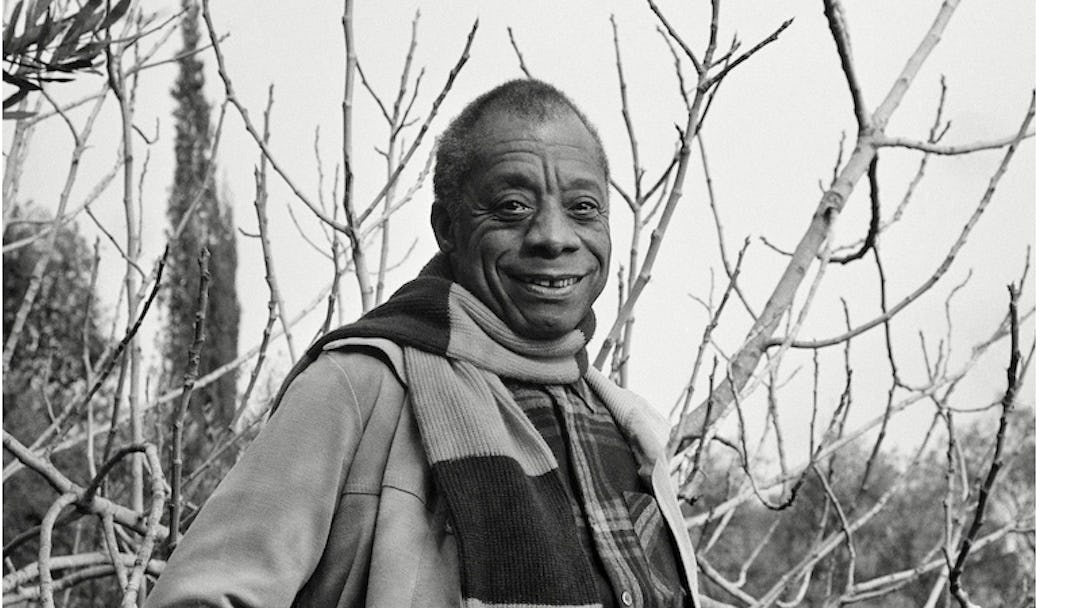This week marks the anniversary of James Baldwin’s death, which occurred twenty-seven years ago in Paris. This week, James Baldwin: The Last Interview and Other Conversations (Melville House) appeared on my desk, a feat of timing that felt resonant during a week where the concept of justice, the idea that Black lives matter, felt very far away as protests broke out — “Hands up! Don’t shoot!” — in New York and across the country after another miscarriage of justice; when a grand jury failed to indict the Staten Island police officer whose chokehold led to Eric Garner’s death, a case that is just one in a tragic line of unarmed black men unfairly targeted by the police force.
The Last Interview and Other Conversations has several stellar interviews — including one with Studs Terkel from 1961, and another with The New York Review of Books from 1984 — and we wanted to shine a light of some of Baldwin’s most salient quotes on America and race. Years after he was a witness to our midcentury troubles and our trauma, his words still carry weight and meaning and above all — urgency. Start with these quotes, and then spend some time with his work.
“All you are ever told in this country about being black is that it is a terrible, terrible thing to be. Now, in order to survive this, you have to really dig down into yourself and recreate yourself, really, according to no image which yet exists in America. You have to impose, in face — this may sound very strange — you have to decide who you are, and force the world to deal with you, not with its idea of you.”
“One is born in a white country… when you open your eyes to the world, everything you see: none of it applies to you. You go to white movies and, like everybody else, you fall in love with Joan Crawford, and you root for the Good Guys who are killing off the Indians. It comes as a great psychological collision when you realize all of these things are metaphors for your oppression, and will lead into a kind of psychological warfare in which you may perish.”
“To be a Negro in this country is really… never to be looked at. What white people see when they look at you is not visible. What they do see when they do look at you is what they have invested you with. What they have invested you with is all the agony, and pain, and the danger, and the passion, and the torment — you know, sin, death, and hell — of which everyone in this country is terrified.”
“As a Negro, you represent a level of experience which Americans deny.”
“I’m not worried about the Negroes in the country even, so much as I am about the country. The country doesn’t know what it has done to Negroes. And the country has no notion whatever — and this is disastrous — of what it has done to itself. North and South have yet to asses the price they pay for keeping the Negro in his place; and, to my point of view, it shows in every single level of our lives, from the most public to the most private.”
“Time will prove the connection between the level of the lives we lead and the extraordinary endeavor to avoid black men. It shows in our public life.”
“In a way, the American Negro is the key figure in this country; and if you don’t face him, you will never face anything.”
